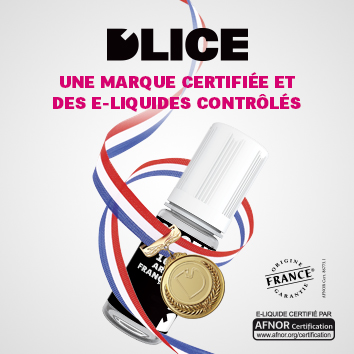Study on vaping: no negative effects on respiration

 Amir Farnoud of the University of Ohio has conclusively demonstrated that vaping technology is less dangerous than conventional cigarettes. The methodology and results of the study were published in the international medical journal “Respiratory Research” in late 2017. To complete this study, researchers specialised in chemical and bio-molecular engineering focused on the effects of vaping on pulmonary surfactant.
Amir Farnoud of the University of Ohio has conclusively demonstrated that vaping technology is less dangerous than conventional cigarettes. The methodology and results of the study were published in the international medical journal “Respiratory Research” in late 2017. To complete this study, researchers specialised in chemical and bio-molecular engineering focused on the effects of vaping on pulmonary surfactant.
This fatty substance, essentially composed of lipids and proteins, has both hydrophobic and hydrophilic properties. Acting as a thin protective layer, it reduces surface tension on alveoli walls, facilitating their dilation. The quality of the pulmonary surfactant has a large part to play in the transportation of oxygen.
Due to their small size, the particles contained in e-cig vapour reach the deepest areas of the lungs. Pulmonary surfactant is indispensable to ensure adequate oxygenation of organs. As a result, it provides a reliable metric to measure the effect of vaping on pulmonary health.

E-cig vapour has no negative effects on pulmonary surfactants
To achieve this study, Farnoud and his team worked with pulmonary surfactants extracted from veal. These samples were then exposed to aerosols obtained from a number of e-juice flavours (tobacco, berries, and mint). The choice of flavour is crucial to quantify the health risks of e-cigarettes. Indeed, researcher Amanda Dickinson with the University of Virginie published a statement recently that the potential dangers of e-liquid consumption were also dependent on flavour.
Experiments by Farnoud’s team concluded that exposure to tar contained in cigarette smoke on pulmonary tissue samples caused significant damage to cell tissue. The surfactant lost it’s ability to reduce surface tension as a result. On the other hand, e-cig vapour had no observable effect on the protective properties of pulmonary surfactants.
These results tend towards the conclusion that vaping does not negatively impact the respiratory functions of users. However, Dr Farnoud was careful to specify that this study did not prove that vaping was completely innocuous on the long term.






